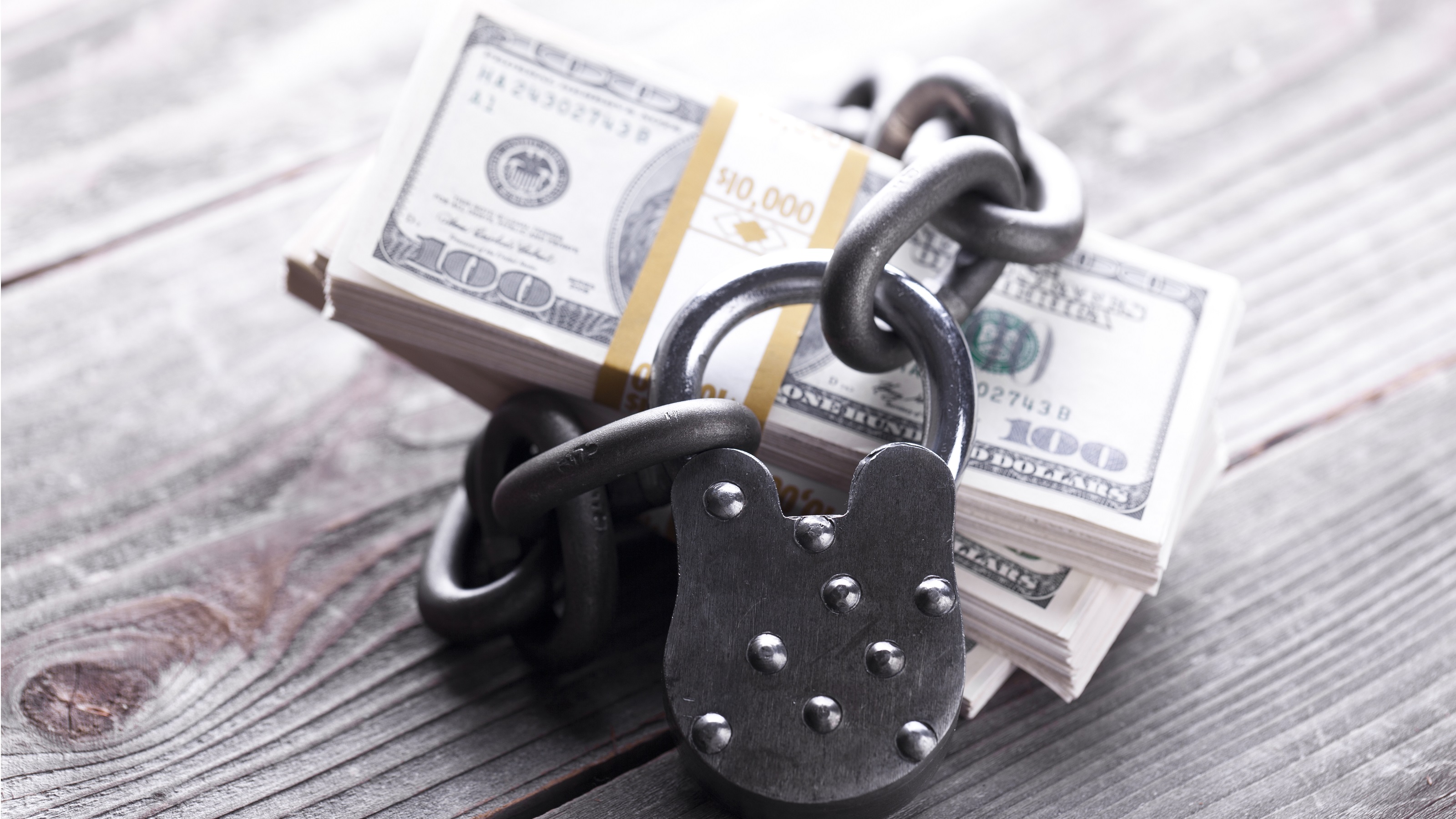Sponsored by LifeLock
12 Ways to Protect Yourself From Fraud and Scams
Think you can spot the telltale signs of frauds and scams? Follow these 12 tips to stay safe from evolving threats and prevent others from falling victim.

There are few worse feelings than realizing someone took advantage of you. And every day, there's a new way someone is setting up scams, putting you and your finances at risk.
Fraud and scams come in all forms, like faked phone calls and swiped credit card information. And even if you safely guard your own data, there's always the chance a company you use gets hacked.
But that doesn't mean you should throw your hands up and accept you'll be scammed someday. The tips below can help you sidestep many kinds of fraud — or quickly spot a scam after it has happened so you can mitigate the damage.
From just $107.88 $24.99 for Kiplinger Personal Finance
Become a smarter, better informed investor. Subscribe from just $107.88 $24.99, plus get up to 4 Special Issues

Sign up for Kiplinger’s Free Newsletters
Profit and prosper with the best of expert advice on investing, taxes, retirement, personal finance and more - straight to your e-mail.
Profit and prosper with the best of expert advice - straight to your e-mail.
1. Be wary of unexpected contact
Question any unexpected communication you receive from a business or government agency, and don't give them any of your personal information.
Even seemingly innocuous details, such as your email address or phone number, can help scammers build a profile about you over time.
If you didn't initiate contact, says Eva Velasquez, CEO of the Identity Theft Resource Center, hang up and go directly to the source.
If you think it's your bank, contact your bank in the manner you usually do — whether it's by logging in to your account, going into the branch or calling the number on the back of your card — and ask a representative whether the institution is trying to get in touch with you.
2. Question messages that convey urgency

Be wary of messages that convey urgency. For example, a scammer may prompt you to wire money immediately to bail your grandchild out of jail or to click on a password-reset link within 24 hours to avoid losing access to an account.
"The bad guys don't want you to stop and think, because they know if you do, there's a chance you'll realize it's a scam," says Teresa Murray, consumer watchdog director for the Public Interest Research Group (PIRG), a consumer advocacy organization.
3. Be alert to current events
Watch out for crooks who are trying to capitalize on current events to pull off a swindle. Following a natural disaster, for example, be on high alert for scams.
"Whenever there's a big storm that goes through an area, people will get phone calls or text messages that pretend to be from their insurance or the federal government," Murray says.
Also, fraudulent emails, calls and text messages purporting to be from job-search websites show up during graduation season.
Tax scams are especially prevalent during tax-filing season.
4. Review activity on your accounts

Sign up for online access at your financial institutions and review the activity on your accounts at least every few days; don't wait for your monthly statement.
If you have older parents who aren't computer-savvy, ask whether you or another trusted person can help review their accounts.
Question suspicious charges, even if they're small. A charge of a few dollars may indicate that a crook is testing the card or account number.
5. Set up text-message alerts
Get text-message alerts for transactions on your financial accounts, including ones you don't access often.
You can customize your notifications to receive alerts of any suspicious activity, for example, or for transactions above a certain size.
But watch out for fraudulent alerts from criminals who are attempting to gather personal information from you. They may say that suspicious activity has appeared on your account, and when you respond, they’ll ask for your account number or Social Security number to validate your identity.
"A bank will never ask to validate you when they call you first," says Paul Benda, executive vice president of risk, fraud and cybersecurity for the American Bankers Association, which has guidance to help people identify phishing scams here.
6. Use strong passwords

Use strong passwords, and don't repeat the same password among different accounts.
The National Cybersecurity Alliance recommends creating passwords that are at least 16 characters long and contain a random mix of uppercase letters, lowercase letters, numbers and special characters.
Store them in a password manager, such as Dashlane or Keeper.
7. Set up multifactor authentication
Multifactor authentication requires an extra step to access your account, such as undergoing a facial scan, entering a code texted to your phone or using a standalone app on your device.
8. Review your credit reports

Review your credit reports regularly for suspicious activity.
If you see a credit card or loan that you don’t recognize, a criminal may have taken out an account in your name.
You can get free weekly online credit reports from Experian, Equifax and TransUnion (the three major credit-reporting companies) at AnnualCreditReport.com
Also, check your older parents' reports and check to see whether your kids have credit records.
9. Consider freezing your credit
Consider freezing your credit. This blocks lenders from accessing your credit reports in response to an application for a new credit account — thwarting thieves who try to open accounts with your information.
It's much easier to freeze and thaw your credit report than it used to be, and it's free.
You can find step-by-step instructions at the websites of the three major credit-reporting companies and at PIRG.
10. Use automatic or electronic payments

Use automatic or electronic payments rather than checks when possible.
"Check fraud has increased significantly in the past couple of years," says Benda. Electronic payments are "better, faster, cheaper and more secure."
However, be suspicious if you're asked to send money through nontraditional payment methods.
"Scammers will insist that you pay through methods such as gift cards and crypto," says Jennifer Ehresman, head of consumer client protection at Bank of America.
11. Stay informed
Scams are always evolving, and they often target topics in the news.
You can keep up with the latest scams at PIRG's scam resource, the FTC's page on scams, the FBI's Internet Crime Complaint Center, the FBI's page on scams and fraud, the BBB's Scam Tracker, the Identity Theft Resource Center and the websites of many banks.
12. Report scams of any size

Pitt recommends starting with the FBI's complaint center, listed above. You can also report scams to the FTC.
These federal agencies don’t typically work on individual cases to help people get refunds, but the information assists with their broader investigations into fraud, says Murray.
Also, report the scam to your financial institution or credit card company, as well as to local law enforcement.
At IdentityTheft.gov, you can describe your situation and get help with an ID theft recovery plan.
"We need consumers to be able to identify fraud and report it without being ashamed," says Pitt. "People tend to be very embarrassed — they can’t believe they fell for this.
"But you have to remember a couple of things: These fraudsters are extremely good at what they do, and they are master manipulators that prey on our vulnerabilities. Anyone can be a victim."
Note: This item first appeared in Kiplinger Personal Finance Magazine, a monthly, trustworthy source of advice and guidance. Subscribe to help you make more money and keep more of the money you make here.
Related content
Profit and prosper with the best of Kiplinger's advice on investing, taxes, retirement, personal finance and much more. Delivered daily. Enter your email in the box and click Sign Me Up.

As the "Ask Kim" columnist for Kiplinger's Personal Finance, Lankford receives hundreds of personal finance questions from readers every month. She is the author of Rescue Your Financial Life (McGraw-Hill, 2003), The Insurance Maze: How You Can Save Money on Insurance -- and Still Get the Coverage You Need (Kaplan, 2006), Kiplinger's Ask Kim for Money Smart Solutions (Kaplan, 2007) and The Kiplinger/BBB Personal Finance Guide for Military Families. She is frequently featured as a financial expert on television and radio, including NBC's Today Show, CNN, CNBC and National Public Radio.
-
 Quiz: Do You Know How to Avoid the "Medigap Trap?"
Quiz: Do You Know How to Avoid the "Medigap Trap?"Quiz Test your basic knowledge of the "Medigap Trap" in our quick quiz.
-
 5 Top Tax-Efficient Mutual Funds for Smarter Investing
5 Top Tax-Efficient Mutual Funds for Smarter InvestingMutual funds are many things, but "tax-friendly" usually isn't one of them. These are the exceptions.
-
 AI Sparks Existential Crisis for Software Stocks
AI Sparks Existential Crisis for Software StocksThe Kiplinger Letter Fears that SaaS subscription software could be rendered obsolete by artificial intelligence make investors jittery.
-
 One of the Most Powerful Wealth-Building Moves a Woman Can Make: A Midcareer Pivot
One of the Most Powerful Wealth-Building Moves a Woman Can Make: A Midcareer PivotIf it feels like you can't sustain what you're doing for the next 20 years, it's time for an honest look at what's draining you and what energizes you.
-
 I'm a Wealth Adviser Obsessed With Mahjong: Here Are 8 Ways It Can Teach Us How to Manage Our Money
I'm a Wealth Adviser Obsessed With Mahjong: Here Are 8 Ways It Can Teach Us How to Manage Our MoneyThis increasingly popular Chinese game can teach us not only how to help manage our money but also how important it is to connect with other people.
-
 Looking for a Financial Book That Won't Put Your Young Adult to Sleep? This One Makes 'Cents'
Looking for a Financial Book That Won't Put Your Young Adult to Sleep? This One Makes 'Cents'"Wealth Your Way" by Cosmo DeStefano offers a highly accessible guide for young adults and their parents on building wealth through simple, consistent habits.
-
 My Spouse and I Are Saving Money for a Down Payment on a House. Which Savings Account is the Best Way to Reach Our Goal?
My Spouse and I Are Saving Money for a Down Payment on a House. Which Savings Account is the Best Way to Reach Our Goal?Learn how timing matters when it comes to choosing the right account.
-
 We're 78 and Want to Use Our 2026 RMD to Treat Our Kids and Grandkids to a Vacation. How Should We Approach This?
We're 78 and Want to Use Our 2026 RMD to Treat Our Kids and Grandkids to a Vacation. How Should We Approach This?An extended family vacation can be a fun and bonding experience if planned well. Here are tips from travel experts.
-
 My First $1 Million: Retired From Real Estate, 75, San Francisco
My First $1 Million: Retired From Real Estate, 75, San FranciscoEver wonder how someone who's made a million dollars or more did it? Kiplinger's My First $1 Million series uncovers the answers.
-
 To Love, Honor and Make Financial Decisions as Equal Partners
To Love, Honor and Make Financial Decisions as Equal PartnersEnsuring both partners are engaged in financial decisions isn't just about fairness — it's a risk-management strategy that protects against costly crises.
-
 Top 5 Career Lessons From the 2026 Winter Olympics (So Far)
Top 5 Career Lessons From the 2026 Winter Olympics (So Far)Five lessons to learn from the 2026 Winter Olympics for your career and finances.
